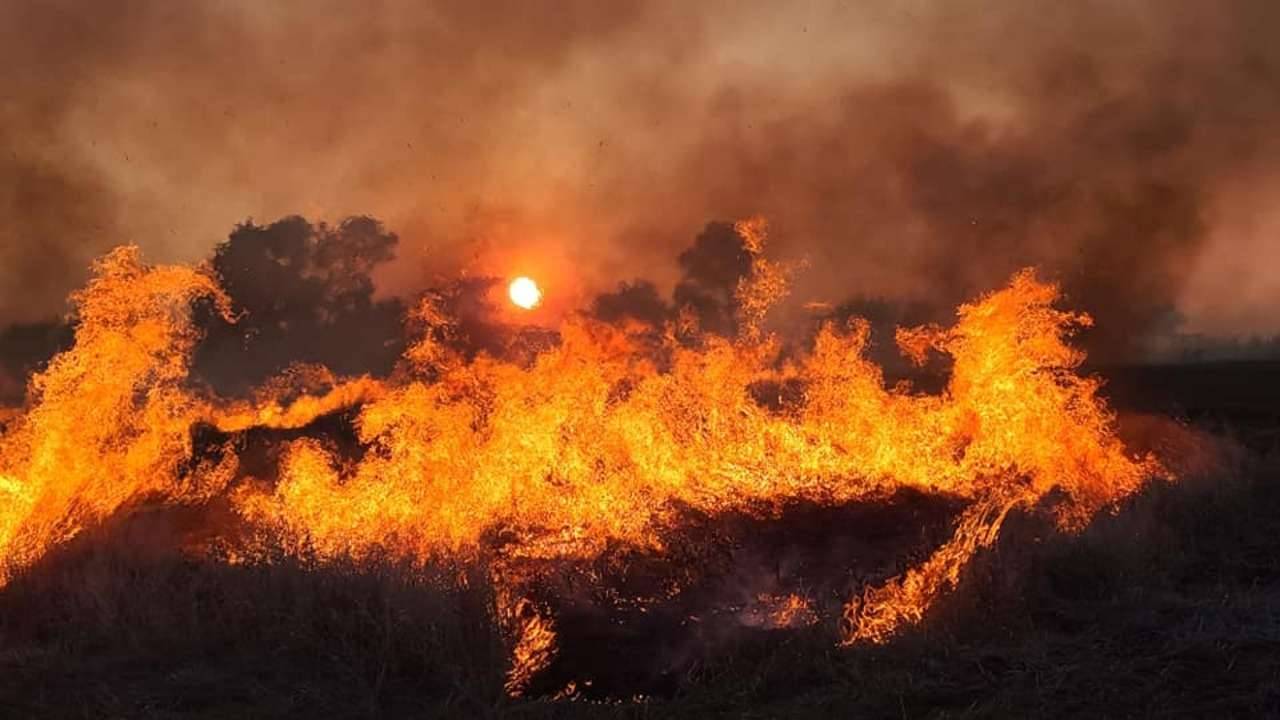
Nurture.farm, a digital platform for sustainable agriculture, has published the results of the Crop Residue Management (CRM) Program: the largest ever project to eliminate stubble burning in India. The CRM program impact report has evidenced benefits across reduced greenhouse gas emissions, improvements in soil health and farmer livelihoods, as well as reduced usage of fertilizers.
Results published in the CRM program impact report indicate 92% overall stubble burn avoidance across the enrolled farms, with close to 420,000 acres of land saved from being burnt, resulting in the prevention of 1,038,965 tonnes of carbon dioxide emissions from being released.
Through the CRM program, nurture.farm supported over 25,000 farmers across 23 districts in Punjab and Haryana with access to farm mechanisation, and a bio-enzyme to decompose their crop stubble. Over the course of the project, over 1000 field personnel from nurture.farm led a fleet of more than 700 boom sprayers serviced over 420,000 acres of paddy fields with the bio-enzyme, developed by the Indian Agricultural Research Institute (IARI), free of cost to the farmers. When sprayed onto the stubble, the PUSA bio-decomposer enzyme decomposes the stubble in 20-25 days, increasing organic carbon in the soil and maintaining overall soil health.
Highlights of the CRM Program:
-
Overall burn avoidance: 92% of acres enrolled (97% in Punjab; 86% Haryana)
-
Prevention of emissions: 1,038,965 tonnes of carbon dioxide; 141,612 tonnes of ash, 42,697 tonnes of carbon monoxide; 2,135 tonnes of particulate matter; 1,423 tonnes of sulphur dioxide
-
20-25% reduction in fertilizer usage and cost for next cropping season
-
20% increase in additional farmer income via short duration crops and yield improvements
-
Over 25,000 farmers educated in stubble burning avoidance mechanisms
Dhruv Sawhney, Business Head and COO of nurture.farm said:
“Stubble burning in India has been one of the most problematic contributors to pollution and public health outcomes – yet despite its catastrophic impact, almost all previous efforts to curb its practice have not succeeded. This program has proved to be a major breakthrough, and we are pleased with the results of the CRM program, through which we have established a viable, scalable, alternative method to stubble burning, and a brighter future for sustainable agriculture in India".
"Technology has been the backbone in the scaling up of this project - through identifying target fields, connecting and educating farmers, facilitating access to mechanisation and equipment, and creating a shared ag-economy – it has enabled us to successfully conduct a program 150x larger than any previously undertaken. As India embarks on its pathway to foster a low-carbon economy, efforts to eliminate stubble burning must be a key priority for our government, and we are confident that through collaboration and concerted action, we can effectively #EndTheBurn and eliminate this over the coming three years. This is just the beginning for nurture.farm - and we look forward to embarking on more impactful projects to foster the growth of resilient farmers and make sustainable outcomes a reality for all.”
Dr. Ashok Kumar Singh, Director of IARI said:
“Recent scientific and technological progress has seen the creation of uplifting tools and technologies that can help farmers thrive - such solutions have to be made accessible and affordable for the farming communities."
"We are so pleased to have worked with nurture.farm to change this endeavor and help farmers harness and deploy a revolutionary bio enzyme that supports their farms and their livelihoods – all whilst tackling one of the widespread agricultural practices of crop residue burning. The completion and impact of this project marks a significant step forward for Indian farming communities and societies, global food systems, and our overall planet health.”









